
ALSO IN THE CULTURE TRAILS SERIES
Pilgrimage to the End of the World: The Road to Santiago de Compostela
Conrad Rudolph
Spiral Jetta: A Road Trip through the Land Art of the American West
Erin Hogan
Freuds Couch, Scotts Buttocks, Bronts Grave
Simon Goldhill
THE APPIAN WAY
GHOST ROAD, QUEEN OF ROADS
ROBERT A. KASTER
University of Chicago Press
Chicago and London
Robert A. Kaster, professor of classics and Kennedy Foundation Professor of Latin at Princeton University, has taught and written mainly in the areas of Roman rhetoric, the history of education, and Roman ethics. His books include Guardians of Language: The Grammarian and Society in Late Antiquity (Berkeley: University of California Press, 1988), Emotion, Restraint, and Community in Ancient Rome (Oxford: Oxford University Press, 2005), and several critical editions and translations, including Seneca: Anger, Mercy, Revenge (with Martha C. Nussbaum) in the University of Chicago Presss Complete Works of Seneca series (2010).
The University of Chicago Press, Chicago 60637
The University of Chicago Press, Ltd., London
2012 by The University of Chicago
All rights reserved. Published 2012.
Printed in the United States of America
| 21 20 19 18 17 16 15 14 13 12 | 1 2 3 4 5 |
ISBN-13: 978-0-226-42571-9(cloth)
ISBN-10: 0-226-42571-1 (cloth)
ISBN-13: 978-0-226-42573-3 (e-book)
Library of Congress Cataloging-in-Publication Data
Kaster, Robert A.
The Appian Way : ghost road, queen of roads / Robert A. Kaster.
p. cm. (Culture trails)
ISBN-13: 978-0-226-42571-9 (cloth : alkaline paper)
ISBN-10: 0-226-42571-1 (cloth : alkaline paper) 1. Appian Way (Italy) I. Title. II. Series: Culture trails.
DG29.A6K37 2012
937.7dc23
2011032769
 This paper meets the requirements of ANSI/NISO Z39.481992 (Permanence of Paper).
This paper meets the requirements of ANSI/NISO Z39.481992 (Permanence of Paper).
For Laura
CONTENTS
PREFACE
Billy Pilgrim says that the Universe does not look like a lot of bright little dots to the creatures from Tralfamadore. The creatures can see where each star has been and where it is going, so that the heavens are filled with rarefied, luminous spaghetti. And Tralfamadorians dont see human beings as two-legged creatures, either. They see them as great millipedeswith babies legs at one end and old peoples legs at the other, says Billy Pilgrim.
KURT VONNEGUT, JR., Slaughterhouse-Five
(on seeing in four dimensions)
The Roman poet Statius called the via Appia regina viarum, the Queen of Roads, late in the first century CE, when the titledespite sounding like chamber-of-commerce pufferycould make a decent claim to the truth. As for the other phrase in my subtitle, Ghost Road, that one came to me one afternoon as my wife and I walked along the roads modern traces. For to travel the Appia today is to step in the tracks of countless ghosts.
No road in Europe has been so heavily traveled, by so many different people, with so many different aims, over so many generations. Standing in one spot, eyes shut, a traveler does not need much imagination to feel the ghosts brush by. A Roman soldier first, as the power of his city forced its way south and laid its weight upon the other tribes of the peninsula, who sometimes managed to push back. Then a craftsman, tradesman, or small farmer bringing his goods to one of the townsMinturnae or Aeclanum or Venusiathat were the links in the civil life of a great empire. Now more soldiers, in wave after wave, first sweeping up from the south with the power of Constantinople at their backs, then down from the northfirst the Lombards, later the Normans (and many others)to settle in the strongholds of Beneventum, Melfi, and countless other hill towns where castles still punctuate the ridges. Pious travelers came this way, too, journeying to Jerusalem with stage-by-stage directions that we can still follow. Then closer to our own day, scholars and states-men, the one lot intent on reclaiming ancient bits of the road in the eighteenth and nineteenth centuries (and on down to the present day), the other following the road on the way to a unified Italy. If we could take in the Appia with the eyes of Vonneguts Tralfamadorians, we would see a millipede shod at one end in the sandals of Appius Claudius Caecuswho conceived the road and gave it his nameand in the shoes of Garibaldis horse near the other end.
Its a sense of this cultural richness that Ive tried to convey in these essays, by telling the story of the road from my own perspective, that of a very imperfectly savvy traveler. Though my profession as a classicist allowed me to begin traveling along the Appia with a few advantageschiefly, a fair knowledge of Latin and a reasonable sense of Roman historythe pockets of my ignorance were far deeper and more numerous. Traveling the Appia was an intense education, and a goad to learn more: the intensity and the excitement of learning are among the forces that drive this book.
Thanks by the carload are owed on several fronts. Susan Bielstein, editor of the Culture Trails series at the University of Chicago Press, suggested that I might contribute to the series, was instantly receptive when I proposed the Appia, and lavished her attention on the initial draft; the Presss Anthony Burton has been helpful in ways technical and nontechnical alike; two readers helped me see where some improvements could be made; and Carol Saller was the perfect copyeditor. Of the two chances Ive had to travel the route, the first and longer came during a sabbatical year provided by Princeton University and the Universitys Humanities Council, which appointed me an Old Dominion Professor in 20082009; both trips were partly funded by the Dean of the Faculty and by the Magie Fund in Princetons Department of Classics, which has been repeatedly generous in its support of my work. Then there are the friendly critics who have done their best to keep me from appearing foolish in print: Yelena Baraz, Ted Champlin, Janet Downie, Elaine Fantham, Denis Feeney, Andrew Feldherr, Harriet Flower, Laura Kaster, Joshua Katz, Chris Kraus, Nino Luraghi, Adrienne Mayor, Brent Shaw, Chris Stray, Stefan Vranka, and Leah Whittington. If they have not wholly succeeded, the fault as always is entirely mine.
This is the second and a half book that Ive dedicated to my wife, Laura. (She shared with my parents the dedication of my first: uncertain back then that Id ever write another, I thought Id better touch all the bases while I had the chance.) For forty-odd years she has nurtured everything Ive written and cast a keen critical eye over much of it, but she has never before been the close collaborator that she was in the travels from which this little book has emerged. Without her, my experience of the Appia would have been thinner and poorer in more ways than I can count; without her, my life would be thinner and poorer in more ways than I can imagine.
I
QUEEN OF ROADS
Rome and the Appian Way
What the hell are we doing here?
The question formed in my mind as the umpteenth car whipped past, inches from my right kneecap, leaving a trail of noxious fumes in its wake. We were making our way back to the city walls of Rome, my wife and I, on a stretch of the ancient Appian Way, between the catacombs of San Sebastiano and San Callisto, where Christians of ancient Rome buried their dead. With about two miles to go, we walked single file, huddling against the walls that hemmed in the left side of the Appia, and flinching as each car went by.
Next page

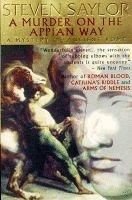

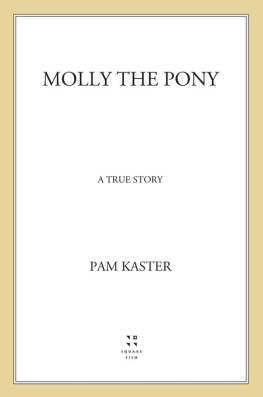
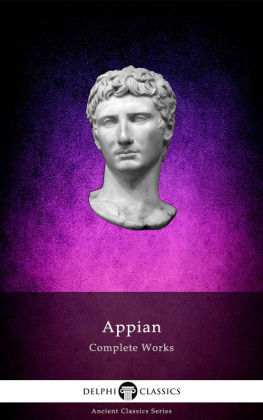
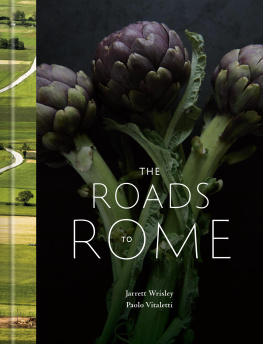
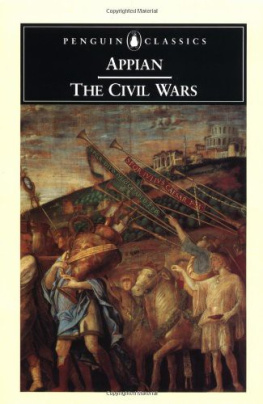
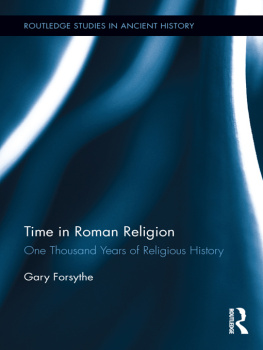
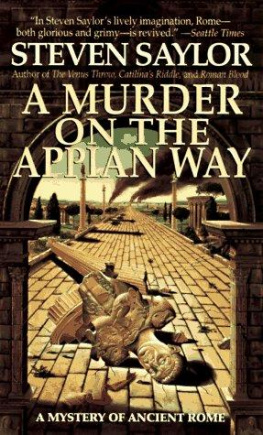

 This paper meets the requirements of ANSI/NISO Z39.481992 (Permanence of Paper).
This paper meets the requirements of ANSI/NISO Z39.481992 (Permanence of Paper).